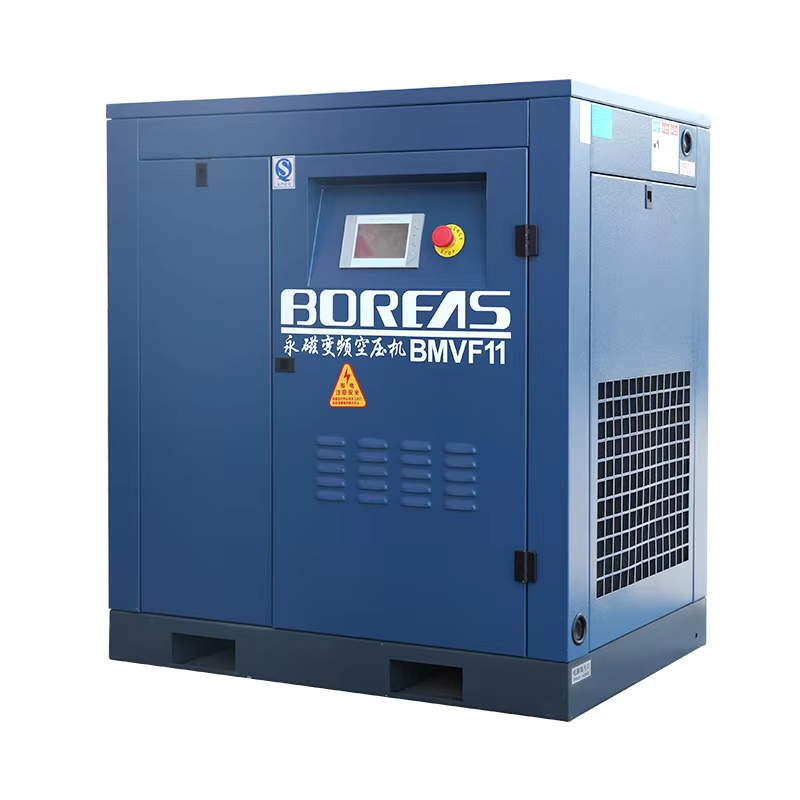Reduced Maintenance Demands for Industrial Operations
No Oil Changes or Filter Replacements
Oilless air compressors are changing how industries operate because they cut down on those pesky oil changes and filter replacements that eat into maintenance budgets and technician hours. These machines don't require oil at all in their design, making day-to-day operations simpler while cutting costs associated with both labor and downtime for maintenance work. Another big plus is no oil means no disposal issues either, so companies worry less about environmental regulations surrounding hazardous waste management. Looking at real world data from manufacturing floors, facilities report fewer breakdowns when switching to oilless models, which translates directly to better productivity numbers across shifts. For plant managers looking to keep production lines running smoothly, going oilless eliminates those annoying interruptions caused by routine maintenance tasks, allowing operations to run consistently without unexpected stoppages.
Minimized Downtime in Continuous Workflows
In manufacturing plants and mines where work just cannot stop, oilless air compressors keep things running smoothly day after day. These machines deliver reliable performance without unexpected breakdowns, which means factories stay productive and production lines keep moving forward. Studies show companies switching to oilless systems experience around 30% less downtime compared to traditional models, translating to real gains in daily output. The mining sector has seen this firsthand with some operations running nonstop for months thanks to reduced component wear from these compressor designs. For businesses operating 24/7, having oilless compressors installed makes all the difference when it comes to keeping operations steady and avoiding costly shutdowns. Many plant managers have found that making the switch pays off over time through fewer maintenance headaches and better bottom line results.
Lower Power Consumption Compared to Lubricated Models
Oilless air compressors consume less power than their lubricated counterparts, making them a smart choice for many operations. The reason behind this improved efficiency lies in their simpler construction, which reduces friction points and lets air move through more freely. According to various industry studies, switching to oilless models can cut electrical expenses around 20 percent, something that really adds up over time for factories and workshops alike. These savings aren't just numbers on paper either companies across different sectors report actual reductions in their monthly bills after installation. Manufacturing plants especially notice the difference when trying to balance their budgets while still meeting environmental targets for energy conservation.
Long-Term ROI for Industrial Facilities
Putting money into an oilless air compressor tends to pay off big time in the long run, mainly because there's less need for maintenance and they generally eat up less electricity. Sure, these units cost more upfront compared to regular ones that require oil changes and such, but most businesses find they save plenty down the road. Factories that run these machines nonstop often see their money back within just two years or so. What makes them so good? Well, they keep running smoothly without all the mess and hassle of oil, which means fewer breakdowns and less money going out the door for repairs. With companies constantly looking to cut costs and boost output, switching to oilless systems isn't just smart financially—it also helps meet those green targets many industries are under pressure to hit nowadays.
Enhanced Durability in Mining and Harsh Environments
Performance Advantages for Mining Drilling Machines
Mining operations rely heavily on drilling equipment where oilless air compressors really shine due to their toughness. These compressors handle rough environments without breaking down as often as traditional models, which cuts down on replacement costs and fixes over time. Field reports from actual miners show these units keep running longer between breakdowns, giving crews peace of mind during critical extraction phases. When compressors fail less frequently, production doesn't grind to a halt waiting for parts or technicians. Less time spent on maintenance translates directly into more hours spent actually extracting valuable minerals instead of chasing repair schedules across remote sites.
Resistance to Dust and Extreme Temperatures
Oilless air compressors can handle tough conditions pretty well. They're built to keep dust out and work even when temps get really hot or cold, which makes them great for things like mining operations and construction sites outside. Field testing shows these machines keep running strong despite exposure to heat waves and all sorts of dirt particles floating around, beating regular compressors that need oil. The durability means they break down less often something that matters a lot when operations cant afford downtime. Many plant managers switching to oilless models notice fewer repairs needed over time according to real world testing across different climates. For industries where reliability counts most, this kind of compressor just makes sense.
Environmental Compliance and Sustainability
Zero Risk of Oil Disposal Contamination
Air compressors that don't require oil offer real benefits when it comes to staying compliant with environmental rules because they get rid of the whole problem of contaminated oil disposal. Without oil running through the system, businesses find it much easier to follow green regulations and can put their energy into being sustainable instead of worrying about how to properly dispose of used oil. These oil free systems actually help cut down on those environmental impact numbers that so many corporations are trying hard to improve, which makes reaching their sustainability targets a lot simpler. Some actual industry reports back this up too, showing that companies switching to these oilless models tend to see pretty good reductions in their overall environmental footprint over time.
Alignment with Green Manufacturing Initiatives
Switching to oilless air compressors fits right in with our green manufacturing goals and cuts down on carbon emissions across the plant. Studies show companies that adopt eco-friendly tech like these compressors see better results in two areas at once corporate responsibility looks good on paper, but customers actually start to notice and appreciate the effort. For manufacturers looking to expand their reach, going oilless opens doors to markets where sustainability isn't just a buzzword anymore. This move isn't just about being environmentally responsible it makes good business sense too. Many industries now require suppliers to meet certain green standards, so getting ahead of this trend helps position us for growth while still doing what's right for the planet.
By employing these green technologies, we further enable our clients to pursue environmentally conscious operations, fostering a shared commitment to sustainable industry practices. Consequently, embracing this evolution not only fortifies our efficacy and environmental compliance but opens avenues to contribute profoundly toward global green manufacturing efforts.

